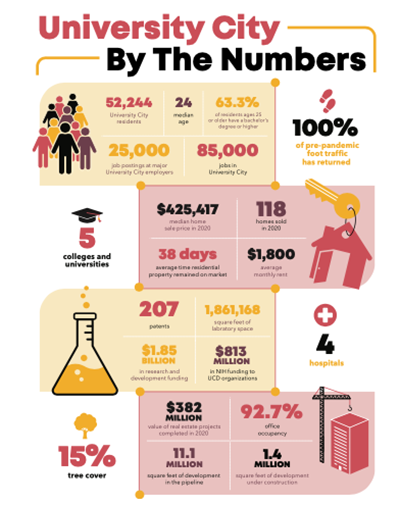M. Elizabeth Magill: Nominated to Become Next President of the University of Pennsylvania
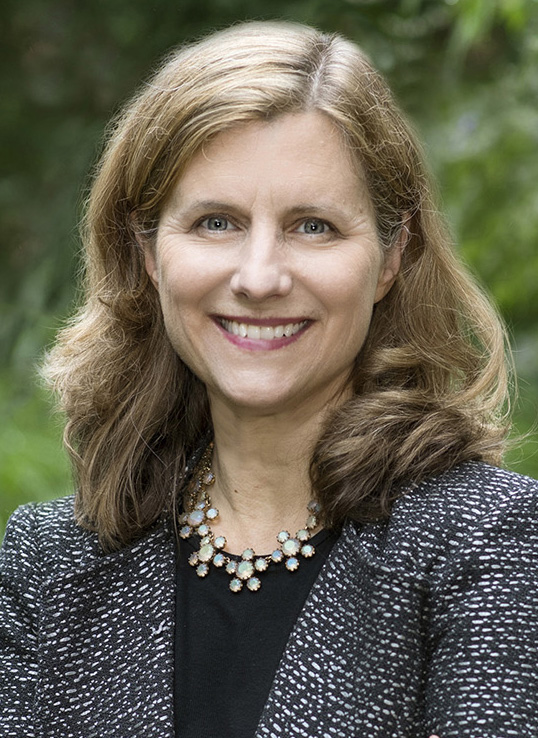 Scott Bok, Chair of the University of Pennsylvania Board of Trustees, today announced that M. Elizabeth Magill, who currently serves as Executive Vice President and Provost of the University of Virginia, has been nominated by the Executive Committee of the Trustees to serve as the ninth President of the University. The full Board of Trustees will vote on Magill’s nomination at its Stated Meeting on March 4.
Scott Bok, Chair of the University of Pennsylvania Board of Trustees, today announced that M. Elizabeth Magill, who currently serves as Executive Vice President and Provost of the University of Virginia, has been nominated by the Executive Committee of the Trustees to serve as the ninth President of the University. The full Board of Trustees will vote on Magill’s nomination at its Stated Meeting on March 4.
Magill would assume the Penn Presidency on July 1, 2022. She would succeed Dr. Amy Gutmann, who announced last year that she would conclude her tenure as Penn’s President after serving in that role since 2004.
“The Penn presidency is one of the most complicated and demanding in higher education, and there are very few people anywhere in the world with the skills that this job demands,” said Bok. “But through a thorough search process informed by input from all university constituencies, we found exactly the right person. Liz Magill is an extraordinarily accomplished academic leader. She has held senior leadership positions at two of the most highly regarded academic institutions in the country, each with a breadth of activities that parallels the broad scope of Penn. In her leadership roles Liz gained valuable experience with the arts and sciences, with a broad range of professional schools and with an academic health system. Throughout her distinguished career she has demonstrated a passionate commitment to academic excellence, to diversity, equity, and inclusion, and to student success at both the undergraduate and graduate levels. Further, she truly understands and values the critical role of faculty in teaching and research, which is so important to Penn. She is a person who cares about others and has a long history of engaging with the communities in which her institutions have operated. We are extremely fortunate to have found someone with the unique vision, integrity, and compassion of Liz Magill to assume the leadership of our university.”
Magill was raised in Fargo, North Dakota and went on to receive a B.A. in History from Yale University and a J.D. from the University of Virginia School of Law. She became EVP and Provost at UVA in 2019. Prior to her tenure at UVA, Magill served for seven years as the Richard E. Lang Professor of Law and Dean of the Stanford Law School. Before joining Stanford, she was on the faculty at the University of Virginia School of Law for 15 years, serving as vice dean, the Joseph Weintraub–Bank of America Distinguished Professor of Law, and Elizabeth D. and Richard A. Merrill Professor.
After graduating from Yale, Magill served as a senior legislative assistant for energy and natural resources for U.S. Senator Kent Conrad, a position she held for four years. She left the Hill to attend the University of Virginia School of Law. After graduating in 1995, Magill clerked for Judge J. Harvie Wilkinson III of the U.S. Court of Appeals for the Fourth Circuit and then for U.S. Supreme Court Justice Ruth Bader Ginsburg, who Magill credits as having had a profound impact on shaping her career. Magill is the first woman to serve as provost at UVA.
“I am humbled and honored by the opportunity to lead the remarkable institution that is the University of Pennsylvania – and to succeed Dr. Amy Gutmann, who has been a visionary and innovative leader,” said Magill. “From its founding, Penn set its sights on making a difference, and 282 years later the Penn community continues to change the world every day through world-class research, teaching, patient care, and service. What is special about Penn is that it does this with an uncommon mix of pragmatism, creativity, and humanity. I look forward to working with the faculty, students, staff, alumni, and community members to build on this inspiring legacy and shape Penn’s next great chapter. I cannot wait to get started.”
Magill is a distinguished scholar and teacher of administrative and constitutional law. A fellow of the American Academy of Arts and Sciences and a member of the American Law Institute, she has been a visiting professor at Harvard Law School, held a fellowship in the Law and Public Affairs Program at Princeton University, and was the Thomas Jefferson visiting professor at Downing College, Cambridge University. Her scholarly articles have been published in leading law reviews, and she has won several awards for her scholarly contributions.
At Stanford, Magill established an innovative Law and Policy Lab, a program that teaches students policymaking by tackling real-life policy challenges for actual clients. She also launched the Global Initiative, which infused a global perspective into the curriculum, including classes taking students and faculty to China, Latin America, India and Europe. Magill was a successful fundraiser as dean, and the global program was funded by the Stanford Law School’s largest alumni gift ever. Magill expanded and redesigned student life initiatives, with a strong emphasis on diversity and inclusion; and oversaw the expansion of Stanford Law’s public service commitments in the local community and beyond. Magill also presided over the largest faculty revitalization at the law school in decades, hiring nearly 30 percent of the faculty. A devoted teacher, Magill continued as dean to make time to teach required first-year constitutional law, hosted students at her home, and relished her connection to students.
“Liz is coming to Penn at an opportune moment,” said Bok. “With the completion of our recent $5.4 billion Power of Penn Campaign, the strong performance of our endowment, the contribution of our university to the creation of the life-saving mRNA vaccines and the ever increasing interest among young people in a Penn education, Penn has the students, the faculty and the funding necessary to scale even greater heights in both teaching and research with the objective of increasing knowledge and strengthening the local, national, and global communities in which we live.”
Jennifer Pinto-Martin, professor of nursing and epidemiology, who served on the search committee, joined Bok in praising Magill’s selection. Said Pinto-Martin: “Liz Magill is a superb choice to lead our university. She has a profound commitment to students and deeply respects the role of faculty governance. I couldn’t be more pleased to have her as Penn’s next President.”
Magill is married to Leon Szeptycki, a professor of law at UVA who also serves as Associate Director of the UVA Environmental Resilience Institute. They have two children.
$18 Million Gift to Support the Shleifer Family Penn First Plus
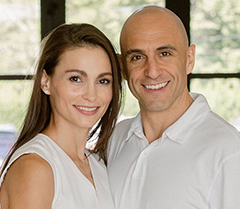 On January 13, the University of Pennsylvania announced an inspiring $18 million gift from Scott and Elena Shleifer to increase its support and critical resources for students who are in the first generation of their family to attend college and/or from households of modest or limited income. This philanthropic support for Penn First Plus (P1P) will have a transformative impact on the program which directly affects many Penn students. Nearly 20% of undergraduate students benefit from the Penn First Plus program, and this academic year, one in seven first-year students at Penn are the first in their families to attend college.
On January 13, the University of Pennsylvania announced an inspiring $18 million gift from Scott and Elena Shleifer to increase its support and critical resources for students who are in the first generation of their family to attend college and/or from households of modest or limited income. This philanthropic support for Penn First Plus (P1P) will have a transformative impact on the program which directly affects many Penn students. Nearly 20% of undergraduate students benefit from the Penn First Plus program, and this academic year, one in seven first-year students at Penn are the first in their families to attend college.
Penn First Plus was created in 2018 by Penn President Amy Gutmann and leaders across the University to ensure all students—regardless of financial or family circumstances—can experience the full breadth of a Penn education. It is a comprehensive and multi-faceted initiative featuring financial, academic, and programmatic elements, with a dedicated physical space in the heart of campus. That space in Penn’s iconic College Hall will now be known as the Shleifer Family Penn First Plus Center.
“I am thrilled and profoundly grateful to Scott and Elena Shleifer for their amazing commitment to support such an important University priority as Penn First Plus,” said President Gutmann. “As a scholarship recipient myself, I know how significantly student aid changes lives. I also know that tuition support alone is often not enough. This gift will enable our University to foster an ever more welcoming and inclusive learning environment to prepare all Penn students for successful lives. We are proud to have the Penn First Plus Center bear the Shleifer Family name.”
Increasing access and bolstering student aid have been fundamental priorities for the University during President Gutmann’s tenure. The Shleifers’ gift is one of the most transformative investments Penn has received for this community of undergraduates. It provides stable funding for the program through endowment, as well as incentive for others to join them in this effort. Their gift includes the creation of a unique challenge fund to offer a match to donors who establish financial aid endowments for Penn First Plus initiatives.
At the Shleifer Family Penn First Plus Center, students in the Penn First Plus community can access comprehensive resources from across the University. They can also meet with Penn First Plus professional staff and connect with experts in academic support, financial aid, wellness, and career services. The Penn First Plus office is led by executive director Marc Lo and faculty co-directors Camille Charles, the Walter H. and Leonore C. Annenberg Professor in the Social Sciences, and Robert Ghrist, the Andrea Mitchell University Professor of Mathematics and Electrical & Systems Engineering. These renowned Penn professors work with faculty to create an enhanced awareness of the attributes of Penn First Plus students. Their peer faculty trainings cover college transition, promoting academic success, and fostering a sense of belonging on campus. The faculty co-directors and Penn First Plus executive director also advise the Pre-Freshman Program, which prepares students for their undergraduate experience through a four-week summer immersion into Penn’s campus life and academic rigors.
“Our purpose is to ensure that any student, from any background, can make the most of a Penn education,” said Dr. Lo. “With this phenomenal gift, we expect to deepen our efforts to enhance student academic achievement, create more opportunities for students to find community and a sense of belonging, increase participation in extracurricular experiences, and, of course, provide more relief to the financial pressures of college. We thank the Shleifers for elevating our ability to provide these unique and holistic services for students.”
“Every student deserves the chance to have the best undergraduate experience possible,” said Dr. Charles. “This remarkable gift not only strengthens the foundation of this program, but raises the ceiling for what we can do to fulfill its vital mission.”
“Over the past few years, we have seen so many Penn First Plus students building a sense of confidence and belonging at Penn. These students earned their admittance at Penn and they, like all students, deserve the support that will propel them to success,” said Dr. Ghrist. “The best part is, we are just getting started.”
An important component of the Shleifers’ gift will expand financial aid, which marks the cornerstone of Penn First Plus. Of Penn’s nearly 10,000 undergraduate students, approximately half receive need-based financial aid. Ten percent receive the University’s most generous and comprehensive financial aid packages for highly-aided students, covering needs such as laptops, holiday break meals and travel, emergency grants, and funds for summer internships, research, study abroad programs and academic courses.
“Attending Penn had an enormously positive impact on my life. I am incredibly grateful for the opportunities this great University opened up to me, and it is my privilege to help provide the same opportunities to other students,” Scott Shleifer said. “Elena and I hope this gift enables many more bright young minds to benefit from a Penn education so they can create the best lives for themselves and their families for generations to come.”
Mr. Shleifer is a 1999 graduate of the Wharton School. He is a partner of the investment firm Tiger Global Management and a co-founder of its venture capital business. Scott and Elena Shleifer’s other gifts to Penn include several undergraduate scholarships, as well as support for the Graduate School of Education, the Wharton School, and other University-wide initiatives.
Penn Medicine: $14 Million NIH Grant, $8 Million Transplantation Research Grant, and $2 Million in CDC Grants
$14 Million NIH Grant
Penn Medicine has been awarded a prestigious seven-year, $14 million grant from the National Institutes of Health (NIH) to promote organ transplantation for patients with end-stage renal disease who are currently on the waitlist for a kidney transplant. The team will launch a clinical trial harnessing synthetic chimeric antigen receptor (CAR) T cells—a form of which was developed at Penn Medicine and became the first personalized cellular therapy for cancer—for use in patients for whom a compatible kidney cannot be found due to pre-existing antibodies against potential donors.
There are currently 97,000 patients on the waiting list for a kidney transplant in the United States. A major barrier to successful transplantation in some of these patients is the existence of pre-formed antibodies against potential organ donors, which arise when patients are exposed to other people’s cells or tissues such as through pregnancy, blood transfusion, or previous organ transplants. Patients who form high levels of donor-specific antibodies, termed “highly sensitized,” tend to wait longer on the transplant list and may never receive an organ.
“Engineering novel cellular immunotherapies to help improve access to kidney transplants is an exciting area of research for a unique patient population in great need of lifesaving organs,” said Ali Naji, the J. William White Professor of Surgical Research in the Perelman School of Medicine at the University of Pennsylvania and principal investigator of the study. “We’re committed to discovering an approach to help these currently transplant-ineligible end-stage renal disease patients find a path forward to an organ match.”
The NIH-funded clinical trial led by Penn will use CAR T cells, a form of immunotherapy that has proven remarkably effective as an anti-cancer treatment. Two experimental CAR T cell therapies developed at Penn will be used to deplete immune B cells and plasma cells that make donor-specific antibodies with the hope of achieving a compatible kidney match.
“CAR T cells represent a powerful and specific therapy targeting immune cells that produce antibodies that preclude successful transplantation,” said Carl H. June, the Richard W. Vague Professor in Immunotherapy in the department of pathology and laboratory medicine and director of the Center for Cellular Immunotherapies and the Parker Institute for Cancer Immunotherapy in Penn’s Abramson Cancer Center. “By combining two CAR T therapies targeting antigens that are found on B cell and plasma cells, we hope to achieve successful kidney transplantation in patients with pre-existing antibodies.”
The trial, which intends to begin enrolling patients by the end of 2022, will be offered at three sites, led by Penn and including the Massachusetts General Hospital/Harvard University and New York University Langone Health.
“Based on previous success with proving that engineered T cell immunotherapies employing synthetic CARs can induce durable remission of B cell lineage and plasma cell malignancies, we are excited for the opportunity to explore this further,” said Alfred Garfall, an assistant professor of hematology at Penn. “With the favorable safety record we observed with this combination cellular approach, there is great anticipation for what Penn’s two experimental CAR T cell therapies could do for patients with cancer, and other conditions, who might benefit from innovative immunotherapies.”
“There is a very high degree of enthusiasm for this research and the impact it can have for patients in need with a treatment approach that could change clinical practice and expand access to transplantation for those with immunologic barriers that currently make them unlikely to receive a transplant,” added Vijay Garud Bhoj, an assistant professor of pathology and laboratory medicine at Penn. “The proposed research we are looking forward to conducting is based on strong preliminary data that suggest both safety and efficacy, which is highly innovative in the field of transplantation.”
$8 Million NIH Transplantation Research Grant
A $8 million grant from the National Institutes of Health (NIH), the next stage of the THINKER project—called THINKER-NEXT—will aim to provide a comprehensive view of the risks and benefits of transplanting HCV-infected kidneys into non-infected patients. The trial will take place for five years at eight institutions, led by Peter Reese, a professor of medicine and epidemiology in the Perelman School of Medicine, and David S. Goldberg, now a professor at the University of Miami, and Douglas E. Schaubel, a professor of biostatistics at the Perelman School of Medicine.
“In the first stage of the trial, we found out that we could cure hepatitis C from the transplant patients. But now we want to know, how well do the organs function compared to others? Do the patients experience any unique complications? Are they susceptible to any other viruses?” Dr. Reese said. “Since this is a study that involves multiple centers, we hope to have enough data about the approach and its long-term implications. This information will be very important if we are to increase adoption of this practice across the country."
Penn Medicine and the seven collaborating institutions will transplant 200 kidneys from HCV-positive donors into new patients during the trial. They will determine: whether pursuing an HCV-positive kidney transplant improves patient survival; the one-year kidney function of HCV-positive kidney transplant recipients; whether the kidney transplant recipients have increased risks of cytomegalovirus infection; and if the prevalence of chronic kidney disease is similar in HCV-positive and HCV-negative kidney donors. The overarching goal is to determine the long-term clinical impact of transplanting kidneys from hepatitis C donors into HCV-negative patients with end-stage kidney disease.
Findings from the THINKER-NEXT project are urgently needed. Currently, the waiting list for a kidney transplant exceeds 94,000 people, with only 14,000 deceased donor kidneys available annually. For the elderly and some other patient groups, it is common to die waiting. Yet, hundreds of kidneys from donors infected with hepatitis C virus are discarded annually, and hundreds more kidneys are never procured because of the perception that that centers won’t accept them.
Emily Blumberg, a professor of infectious diseases; Roy Bloom, a professor of renal-electrolyte and hypertension; Stacey Prenner, an assistant professor of gastroenterology; and Peter Abt, a professor of surgery, provide expertise as co-investigators on the clinical trial.
$2 Million in CDC Grants
More than $2 million in grants from the U.S. Centers for Disease Control and Prevention (CDC) will allow a Penn Medicine team to further develop infrastructure and clinical capacity to address antimicrobial resistance and infectious diseases in Botswana. The grant will support Penn’s work, in collaboration with Children’s Hospital of Philadelphia, at multiple locations across the country through the Botswana-UPenn partnership, a 20-year collaboration between Penn’s Center for Global Health and the University of Botswana and the Botswana Ministry of Health and Wellness. While this grant primarily supports clinical work and capacity, the award also lays the groundwork to conduct more antimicrobial-resistance research in the years ahead.
Funding to Penn is part of a new $22 million, 50-plus-country, and 28-organization total investment from the CDC to tackle antimicrobial resistance, the result of virus, bacteria, and fungi changes that leave microbes tougher to kill and harder to treat in infected patients. In order to curb antimicrobial resistance, clinicians need to track resistance mutations, monitor transmission, and better control infection spread in and out of healthcare settings.
“Thanks to the Penn Center for Global Health, Penn has an extremely well-established relationship on the ground in Botswana and with the University of Botswana,” said Ebbing Lautenbach, chief of infectious diseases at Penn and co-PI of the grant. “Botswana is a key place to continue developing strategies to address antimicrobial resistance. While there is a capable cohort of experts and researchers in Botswana experienced in managing and treating various infectious diseases, there remain considerable challenges to addressing healthcare-associated infection and antibiotic resistance. As such, developing and testing infection-control interventions are vital.”
Antimicrobial resistance, particularly antibiotic resistance, continues to be a growing problem worldwide in part due to the overuse of antibiotics. More responsible antibiotic stewardship and strategies to prevent healthcare infections are just some of many interventions that can be employed to prevent further emergence of resistance.
Penn is among several organizations receiving a CDC antimicrobial-resistance grant. Other institutions receiving grants include the University of Oxford, the World Health Organization, and Johns Hopkins University.
Penn Dental Medicine Serves Afghani Refugees with Pop-up Clinic
Responding to an immediate need for dental care in the Penn community, Penn Dental Medicine students and faculty recently created a pop-up clinic for more than 60 Afghani refugees awaiting permanent placement in the Philadelphia metropolitan area. Many arrived in the U.S. in August and their resettlement is being managed by the Philadelphia-based Nationalities Service Center (NSC), which supports immigrant and refugee clients with health and wellness services, community integration, legal protections, opportunities to achieve English language proficiency, and more.
The clinic was set up on a Saturday within the residential hotel where the refugees are currently living. Sixteen third- and fourth-year DMD students, along with Penn Dental faculty Olivia Sheridan and Leonard Jensen and hygienist Karoline Genung, provided care to more than 60 patients, with future appointments made for another 35 patients and 100 hygiene kits dispensed. The major concern of the majority of the families was dental pain and disease. Along with dental exams, fluoride varnish was applied in the oral cavities of everyone seen and over 50 units of silver diamine fluoride were placed and several atraumatic restorative treatment (ART) restorations completed. A number of emergent cases were referred to the school’s Vulnerable Populations Clinic for care. In addition to dental care, extensive hygiene and nutritional advice was provided.
“We did not stop until we ran out of supplies,” recalled Dr. Sheridan, noting that the tremendous need for care has prompted the school to expand the service of its Vulnerable Populations Clinic. Through July 1, the clinic will expand its service hours from two to three days per week. “Dean Mark Wolff and the entire school administration are deeply committed to supporting these efforts and our student and faculty volunteers have clearly heard the call,” added Dr. Sheridan. “They continue to step up and provide this much-needed care for our newest arrivals.”
Workday will introduce a new Workday home page experience on Tuesday, February 1, 2022. The new Workday home page will have a fresh look to help you find what you need and use most often.
All Workday users are invited to attend a live, virtual demonstration on January 26, 2022 from noon to 12:30 p.m. ET. In addition to the home page tour, we will show how to find some popular, self-service items. The demonstration will be recorded for later access.
Get the Zoom meeting link or download the iCalendar to add the event to your calendar by logging into the Workday@Penn website (PennKey required). The Zoom meeting is limited to 300 participants.
—Workday Operations
Benchmarks: 25-Year Club: New Members in 2021
Since 1956, Penn has celebrated a rite of passage each year, for faculty and staff of all ranks who have been members of the University community for twenty-five years. Another 175 new members crossed the twenty-five year mark in 2021.
Denise Adamson, School of Dental Medicine
Scott Adkins, Facilities and Real Estate Services
Shirley Alameda, Facilities and Real Estate Services
Ameena V. Al-Amin, Perelman School of Medicine
Margaret Alfarano, School of Veterinary Medicine
Pearette Allen, Provost’s Center
Nadra Allen, Facilities and Real Estate Services
Marianne Altland Williams, Perelman School of Medicine
Hewett Ashbridge, Perelman School of Medicine
Yiwola Awoyale, School of Arts and Sciences
Robert Baldassano, Perelman School of Medicine
Gordon Baltuch, Perelman School of Medicine
Thomas Barber, School of Dental Medicine
Sandra Barile, Perelman School of Medicine
Jeffrey Barta, Residential and Hospitality Services
Khalil Bdeir, Perelman School of Medicine
Sam Belkowitz, Weitzman School of Design
Deborah Bennett, School of Nursing
Bill Berner, School of Arts and Sciences
Ian Blair, Perelman School of Medicine
John Blankemeyer, Facilities and Real Estate Services
Timothy Block, Morris Arboretum
Lawrence Boggs, Provost’s Center
Pamela Bond, Residential and Hospitality Services
Timothy Bouffard, Information Systems and Computing
Patricia Brown, Residential and Hospitality Services
Marvin Brown, University Library
Rebenia Cesar, Residential and Hospitality Services
Jesse Chittams, School of Nursing
Cynthia Clark, Perelman School of Medicine
Dareus Conover, School of Arts and Sciences
Dishea Cummings, Provost’s Center
Andrew Dancis, Perelman School of Medicine
Mark Devlin, School of Arts and Sciences
Clare Din, School of Arts and Sciences
Dennis Discher, School of Engineering and Applied Science
Thomas Donaldson, Wharton School
James Donnelly, Facilities and Real Estate Services
Tamra Dunston, Development and Alumni Relations
Jonathan Epstein, Perelman School of Medicine
David Fahringer, School of Dental Medicine
Patricia Felder, Residential and Hospitality Services
Polina Fenik, Perelman School of Medicine
Susan Ferrazzano, Law School
Alan Flake, Perelman School of Medicine
Shaun Flannery, Facilities and Real Estate Services
Maurice Fluellen, Perelman School of Medicine
John Flynn, Perelman School of Medicine
Mark Fogel, Perelman School of Medicine
Douglas Frye, Graduate School of Education
Tapan Ganguly, Perelman School of Medicine
Lan Gao, Perelman School of Medicine
Randi Garnick, Law School
James Gentner, Facilities and Real Estate Services
William Gipson, Student Services
Leah Glickman, University Library
Jerry Glickson, Perelman School of Medicine
Paul Goldin, School of Arts and Sciences
Michael Granato, Perelman School of Medicine
Steven Greenberg, Perelman School of Medicine
Thomas Grogan, Facilities and Real Estate Services
Stephan Grupp, Perelman School of Medicine
Carmen Guerra, Perelman School of Medicine
Indira Gurubhagavatula, Perelman School of Medicine
Daniel Hammer, School of Engineering and Applied Science
Andre Harris, Information Systems and Computing
Banadir Hassan, Facilities and Real Estate Services
Christopher Helker, Perelman School of Medicine
Lorin Hitt, Wharton School
Tina Horowitz, Wharton School
Catherine Hou, Perelman School of Medicine
Zhen-Yu Huang, Perelman School of Medicine
Alfred Hunter, Residential and Hospitality Services
Christopher Hunter, School of Veterinary Medicine
Diane Hurley, School of Veterinary Medicine
Sheila Jainlett, University Library
Charles Johnson, Residential and Hospitality Services
Eric Johnston, School of Engineering and Applied Science
Philip Jones, University Museum
Kimberly Junod, President’s Center
Patrick Kim, Perelman School of Medicine
Leslie King, School of Veterinary Medicine
Athena King-Miller, Facilities and Real Estate Services
Jennifer Kogan, Perelman School of Medicine
Magdalena Korecka, Perelman School of Medicine
Eric Krilowicz, Information Systems and Computing
Taryn Kutish, School of Arts and Sciences
Tony Kutovoy, Wharton School
Dwaune Latimer, University Museum
Liza Law, Wharton School
Denise Lay, School of Engineering and Applied Science
David Levy, Perelman School of Medicine
James Lewis, Perelman School of Medicine
Jun Li, Perelman School of Medicine
Chengyang Liu, Perelman School of Medicine
Kathleen Loomes, Perelman School of Medicine
Alison Loren, Perelman School of Medicine
Zhe Lu, Perelman School of Medicine
Elizabeth Mackenzie, Graduate School of Education
Margrit Maggio, School of Dental Medicine
Gillian Maimon, Graduate School of Education
David Malamed, Perelman School of Medicine
Beth Mark, Health and Wellness
Diane Mcgarvey, Perelman School of Medicine
Edward Mclaughlin, Facilities and Real Estate Services
Gayle Meadows, Perelman School of Medicine
Qing Meng, Perelman School of Medicine
Rosemarie Mick, Perelman School of Medicine
Bryan Miles, Division of Finance
Lisa Montenegro, Perelman School of Medicine
Joanne Murray-Gilmore, Annenberg School for Communication
Katherine Nathanson, Perelman School of Medicine
Hillary Nelson, Perelman School of Medicine
Russell Ney, Wharton School
Michael Ng, Business Services
Dawn Norris, School of Engineering and Applied Science
Rolf Noyer, School of Arts and Sciences
Una O’Doherty, Perelman School of Medicine
Edward Ochroch, Perelman School of Medicine
Michael Pack, Perelman School of Medicine
Tonya Parks, Perelman School of Medicine
Warren Pear, Perelman School of Medicine
Robert Perlish, Perelman School of Medicine
Nadya Petryk, University Library
James Pilla, Perelman School of Medicine
David Porter, Perelman School of Medicine
Susan Primavera, Perelman School of Medicine
Kathleen Propert, Perelman School of Medicine
Ricardo Ramos, Facilities and Real Estate Services
Vasu Renganathan, Perelman School of Medicine
Susan Rheingold, Perelman School of Medicine
Gearline Robinson, Provost Interdisciplinary Programs
Edward Royzman, School of Arts and Sciences
David Rubin, Perelman School of Medicine
Eduardo Ruchelli, Perelman School of Medicine
Robert Sadoff, Provost’s Center
Christopher Savidge, Perelman School of Medicine
Elizabeth Scheyder, School of Arts and Sciences
Edna Schwab, Perelman School of Medicine
Alison Seward, School of Veterinary Medicine
Brian Sherman, School of Veterinary Medicine
Anne Shuman, Provost’s Center
Rudra Sil, School of Arts and Sciences
Rebecca Simmons, Perelman School of Medicine
Julie Sochalski, School of Nursing
Julie Spaeth, Development and Alumni Relations
Kelly Spratt, Perelman School of Medicine
David Steinberg, Perelman School of Medicine
Julie Stern-Delfiner, Perelman School of Medicine
Eric Stoopler, School of Dental Medicine
Angelo Talley, Business Services
Jonathan Tanner, Perelman School of Medicine
Elena Taratuta, Perelman School of Medicine
Andrew Thomas, University Library
Ann Marie Thompson, Perelman School of Medicine
Sharon Thompson-Schill, School of Arts and Sciences
Petra Todd, School of Arts and Sciences
Andrew Ulane, Information Systems and Computing
Jose Vithayathil, School of Arts and Sciences
Domenic Vitiello, Weitzman School of Design
William Vought, Perelman School of Medicine
Lori Waddell, School of Veterinary Medicine
David Wallace, School of Arts and Sciences
Kim Walls, Perelman School of Medicine
Tammy Watson, Student Services
Laurel Weaver, Perelman School of Medicine
Frederick Webb, Facilities and Real Estate Services
Andrew Wells, Perelman School of Medicine
Ramona Wesolowski, Facilities and Real Estate Services
Eleanor Whittock Martin, Perelman School of Medicine
Cynthia Wicks, Perelman School of Medicine
Robert Wilensky, Perelman School of Medicine
Vern Yoneyama, Information Systems and Computing
Kelly Young Graver, School of Veterinary Medicine
Jennifer Yuan, Information Systems and Computing
 Scott Bok, Chair of the University of Pennsylvania Board of Trustees, today announced that M. Elizabeth Magill, who currently serves as Executive Vice President and Provost of the University of Virginia, has been nominated by the Executive Committee of the Trustees to serve as the ninth President of the University. The full Board of Trustees will vote on Magill’s nomination at its Stated Meeting on March 4.
Scott Bok, Chair of the University of Pennsylvania Board of Trustees, today announced that M. Elizabeth Magill, who currently serves as Executive Vice President and Provost of the University of Virginia, has been nominated by the Executive Committee of the Trustees to serve as the ninth President of the University. The full Board of Trustees will vote on Magill’s nomination at its Stated Meeting on March 4.
 On January 13, the University of Pennsylvania announced an inspiring $18 million gift from Scott and Elena Shleifer to increase its support and critical resources for students who are in the first generation of their family to attend college and/or from households of modest or limited income. This philanthropic support for Penn First Plus (P1P) will have a transformative impact on the program which directly affects many Penn students. Nearly 20% of undergraduate students benefit from the Penn First Plus program, and this academic year, one in seven first-year students at Penn are the first in their families to attend college.
On January 13, the University of Pennsylvania announced an inspiring $18 million gift from Scott and Elena Shleifer to increase its support and critical resources for students who are in the first generation of their family to attend college and/or from households of modest or limited income. This philanthropic support for Penn First Plus (P1P) will have a transformative impact on the program which directly affects many Penn students. Nearly 20% of undergraduate students benefit from the Penn First Plus program, and this academic year, one in seven first-year students at Penn are the first in their families to attend college.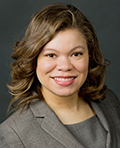 Gwendolyn Gordon, an assistant professor in the Wharton School’s department of legal studies and business ethics with a secondary appointment in the School of Arts and Sciences’ department of anthropology, passed away recently. She was 41.
Gwendolyn Gordon, an assistant professor in the Wharton School’s department of legal studies and business ethics with a secondary appointment in the School of Arts and Sciences’ department of anthropology, passed away recently. She was 41.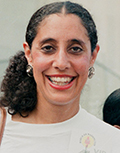 Carol Lani Guinier, one of the nation’s foremost scholars on race and civil rights and a professor at Penn’s Law School (today the Carey Law School) from 1988 to 1998, passed away on January 7 from complications of Alzheimer’s Disease. She was 71.
Carol Lani Guinier, one of the nation’s foremost scholars on race and civil rights and a professor at Penn’s Law School (today the Carey Law School) from 1988 to 1998, passed away on January 7 from complications of Alzheimer’s Disease. She was 71.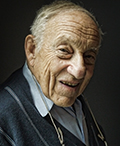 Elihu Katz, a foundational figure in the field of media studies and the distinguished trustee emeritus professor of communication in Penn’s Annenberg School for Communication, passed away on December 31. He was 95.
Elihu Katz, a foundational figure in the field of media studies and the distinguished trustee emeritus professor of communication in Penn’s Annenberg School for Communication, passed away on December 31. He was 95.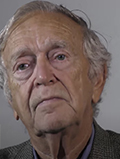 Alan M. Laties, an emeritus professor of ophthalmology in Penn’s Perelman School of Medicine, passed away on December 26, 2021. He was 90.
Alan M. Laties, an emeritus professor of ophthalmology in Penn’s Perelman School of Medicine, passed away on December 26, 2021. He was 90. William (Bill) Schilling, C’66, L’69, who served as director of Student Financial Aid (later Student Financial Services, or SFS) from 1981 to 2021, passed away on December 9, 2021 after a brief and sudden struggle with cancer. He was 76.
William (Bill) Schilling, C’66, L’69, who served as director of Student Financial Aid (later Student Financial Services, or SFS) from 1981 to 2021, passed away on December 9, 2021 after a brief and sudden struggle with cancer. He was 76. For the second year in a row, Angela Duckworth —Rosa Lee and Egbert Chang Professor at the Wharton School and the School of Arts and Sciences' department of psychology with a secondary appointment at Penn GSE—has been named at the top of Education Week’s Edu-Scholar Public Influence Rankings.
For the second year in a row, Angela Duckworth —Rosa Lee and Egbert Chang Professor at the Wharton School and the School of Arts and Sciences' department of psychology with a secondary appointment at Penn GSE—has been named at the top of Education Week’s Edu-Scholar Public Influence Rankings. Deep Jariwala, assistant professor in the department of electrical and systems engineering in Penn Engineering, is the 2022 recipient of the IEEE Photonics Society Young Investigator Award. The IEEE Photonics Society is a technical community of more than 100,000 professionals dedicated to transforming breakthroughs in quantum physics into revolutionary devices, systems and products.
Deep Jariwala, assistant professor in the department of electrical and systems engineering in Penn Engineering, is the 2022 recipient of the IEEE Photonics Society Young Investigator Award. The IEEE Photonics Society is a technical community of more than 100,000 professionals dedicated to transforming breakthroughs in quantum physics into revolutionary devices, systems and products. The National Hispanic Council on Aging (NHCOA) recently honored Adriana Perez, an assistant professor in Penn Nursing’s department of family and community health with its Research Recognition Award during its 2021 special awards ceremony, United for Equity, on December 9, 2021. The ceremony focused on inequalities impacting health and economic security.
The National Hispanic Council on Aging (NHCOA) recently honored Adriana Perez, an assistant professor in Penn Nursing’s department of family and community health with its Research Recognition Award during its 2021 special awards ceremony, United for Equity, on December 9, 2021. The ceremony focused on inequalities impacting health and economic security.
